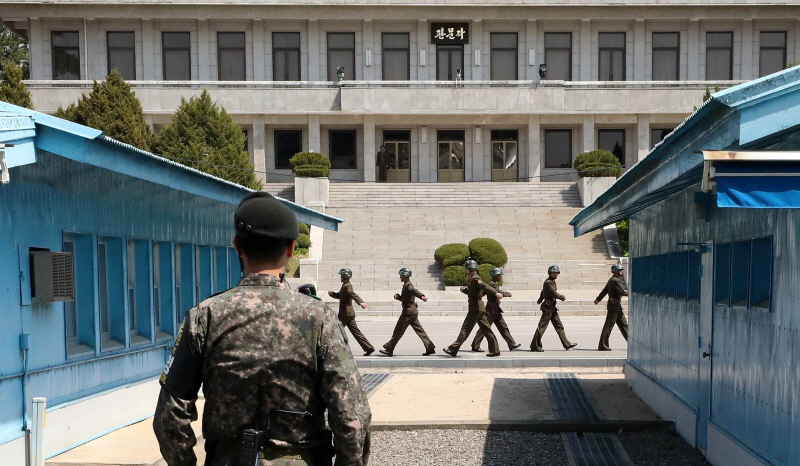A recent survey revealed that one out of three South Koreans believe unification with North Korea is unnecessary, marking the highest rate since such surveys began. In particular, nearly half of respondents in their 20s and 30s expressed little need for unification.
Seoul National University’s Institute for Peace and Unification Studies released the findings of the “2024 Unification Perception Survey” on October 2. According to the survey, 35% of respondents said unification is “not necessary” or “not really necessary,” the highest percentage since the survey began in 2007.
Only 36.9% of respondents felt unification is necessary, the lowest figure on record. Hostility toward North Korea also reached a record high of 22.3%, doubling from 11.2% in 2021.

Negative views on unification were particularly strong among younger generations. In the survey, 47.4% of respondents in their 20s and 45% in their 30s said unification is not necessary, while only 22.4% and 23.9%, respectively, said it is needed.
Additionally, the belief that unification is impossible was higher among younger generations, with 45.1% of respondents in their 20s and 43.1% in their 30s expressing this view, compared to 35.8% in their 40s, 34.7% in their 50s, and 38.3% in their 60s.
The top reason for opposing unification was the “economic burden” (33.9%) it would bring, followed by “social issues that would arise after unification” (27.9%) and “political differences between the two Koreas” (19.2%). On the other hand, only 43% of respondents said unification would benefit South Korea, the lowest level since the survey began.
The Institute attributed the rise in negative perceptions to ongoing inter-Korean tensions under the Yoon Suk Yeol administration.
“The shift in North Korea’s strategy from unification to a hostile stance towards the South has heightened anxiety and distrust,” said Kim Byung-ro, a researcher at the institute. Satisfaction with the Yoon administration’s North Korea policy fell to 55.9%, a 12.8 percentage point drop from last year.
The survey, conducted by Gallup Korea between July 1 and 23, involved one-on-one interviews with 1,200 adults nationwide. The margin of error is 2.8% with a 95% confidence level.
BY CHANKYU LEE, YOUNGNAM KIM [lee.chankyu@joongang.co.kr]



![Ex-South Korean President Accused of Trying to Trigger North Korean Attack Former President Yoon Suk Yeol leaves the Seoul Central District Court in southern Seoul after the pretrial detention hearing on July 9. [JOINT PRESS CORPS]](https://www.koreadailyus.com/wp-content/uploads/2025/07/0710-Yoon-100x70.jpg)
